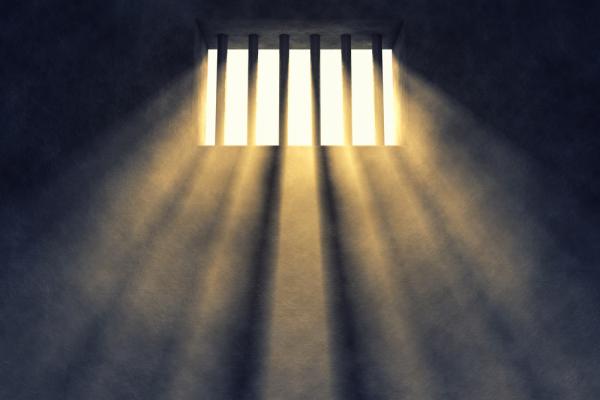Week after week, we can take on the biggest issues we face as a society — from continuing racism, mass incarceration, inequality, and poverty to gender violence and human trafficking, climate change, ISIS — and just try to be hopeful.
Or we can start by going deeper, to a more foundational and spiritual understanding of hope — rooted in our identity as the children of God, made in the image of God, as the only thing that will see us through times like this.
I believe we should start there. Because the biggest problem we face — the biggest enemy at the heart of many of the issues we must address — is hopelessness.
And perhaps the most important thing the world needs from the faith community today is hope.
I believe that hope isn’t a feeling, a mood, or a personality type. Rather, hope is a decision, a choice we make because of this thing we call faith.
I have been re-reading the passages in the Bible that have the word hope in them. I often turn to Hebrews 11:1, "Now faith is the substance of things hoped for, the evidence of things not seen."
Or, in my best paraphrase of that text, "Hope means believing in spite of the evidence and then watching the evidence change."
Studying these texts is teaching me more about hope.
Hope is not just feeling, but a decision. Hope is our vocation and our identity as the people of God. Let’s put it this way — when we confront the depth of things we address we must also understand our role. I am convinced now that hope is our job as people of faith.
Hope is our job.
Hope is the particular thing the people of God need to provide, and is the most important thing that every movement for change needs.
In all of our work for justice, we need to wrestle with this question — where and how is the hope to be found? And how do we bring it — not just the language but the reality?
Ironically, I found some hope in Job. This is a man who had some very big problems and whose faith in God was severely tested.
Still, the book of Job speaks of hope!
"There is hope for a tree. If it is cut down, it will sprout again, and its shoots will not fade away." (Job 14:7)
This meditation on hope continues in both Old and New Testaments:
"Hope deferred makes the heart sick, but a longing fulfilled is a tree of life." (Proverbs 13:12)
"Whoever is joined to all of life has hope." (Ecclesiastes 9:4)
And this one from Paul’s letter to the Romans, "Now hope that is seen is not hope, for who hopes in what is seen. But if we hope in what we do not see we live with patience and perseverance." (Romans 8:24)
I learned much of my theology of hope in South Africa during the anti-apartheid movement. Desmond Tutu, Nelson Mandela, and so many others taught me — and taught the world — the power of hope. But when I went back to South Africa last August, I was not feeling much hope. Given our political situation, I remember thinking I needed to find some hope in South Africa again.
And I did — with a new generation of South African leaders I met for the first time, who want to finish transforming their country by focusing on economic inequality and gender violence.
On August 9, 2014, when Michael Brown was killed in Ferguson, Mo., my family and I were with these young South African leaders. The Ferguson story spread throughout South Africa. When I came home, Lisa Sharon Harper and I went to Ferguson and met the young leaders there. For weeks I watched them day after day, night after night refuse to back down or be quiet or go home, but instead raise up a movement called "Black Lives Matter." With their perseverance, a new national conversation on policing and criminal justice began, and a new hope was born.
Remember those biblical texts about the relationship between perseverance and hope? Sometimes hope is just getting up morning after morning and getting back at it.
Some of those young Ferguson leaders were with us last week at the Sojourners leadership Summit, and so were some of those young South African leaders. What a blessing. They met, talked, and dreamed with each other and with the other young dreamers that were there.
So look out, world — here comes the hope.
The first night of the Summit was called "The Way of Hope." Tragically, the Summit was just starting when the Charleston, S.C., shootings occurred. Just an hour after we finished talking about hope, Dylann Roof carried out his massacre in Mother Emanuel AME Church.
We spent the next morning in lament and were grateful to be together. Soong-Chan Rah, one of our Summit emcees and a brilliant theologian, in my opinion, had this to say,
"Lament, however, is not a passive act. …Lament is subversive and an act of protest. …Once lament occurs, hope emerges as a community can no longer sit by silently in the face of injustice."
This year’s Summit was full of lament for what is going on around us in this world. But it was also full of hope — hope powerful enough to overcome the hopelessness.
As the family members of the Charleston victims reminded the nation, only love can overcome hate, and the hope that comes from faith will win.
Lamentations 3:21-23 says this,
"Yet, I still dare to hope when I remember this:
The steadfast love of the Lord never ceases.
His mercies never come to an end.
They are new every morning — new every morning.
Great is your faithfulness Oh Lord — great is your faithfulness."
Amen.
Got something to say about what you're reading? We value your feedback!

